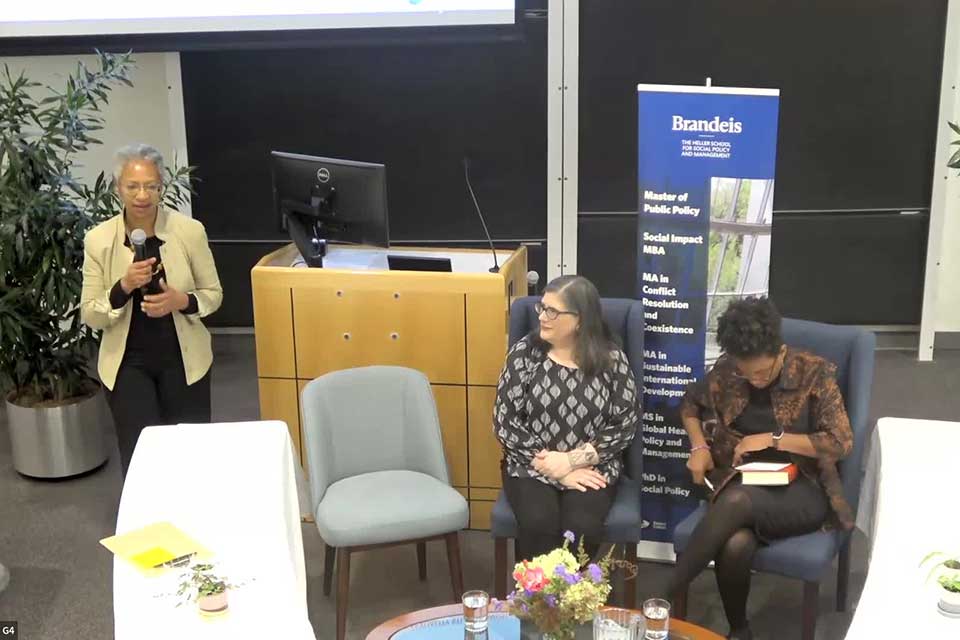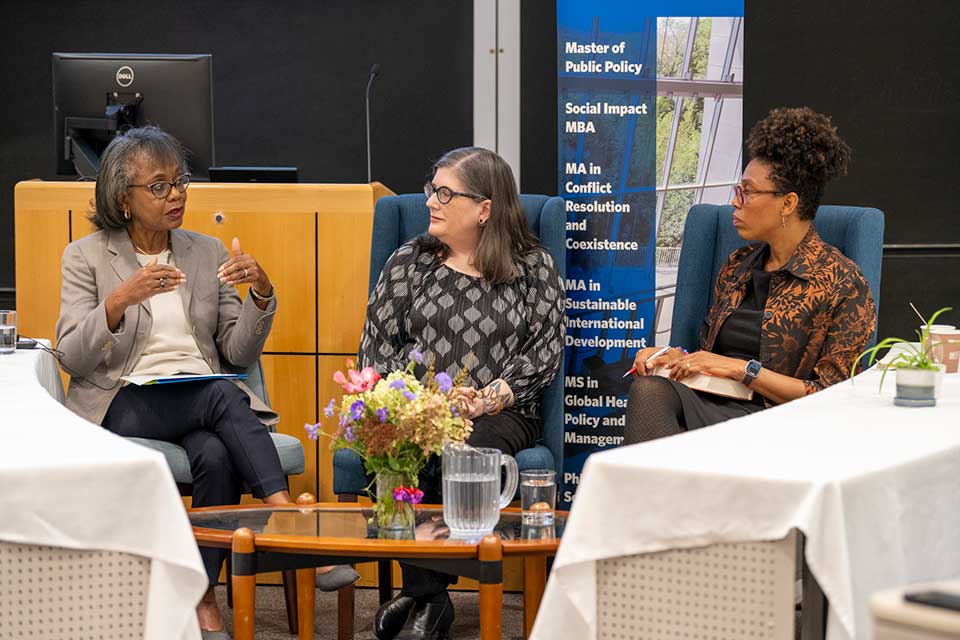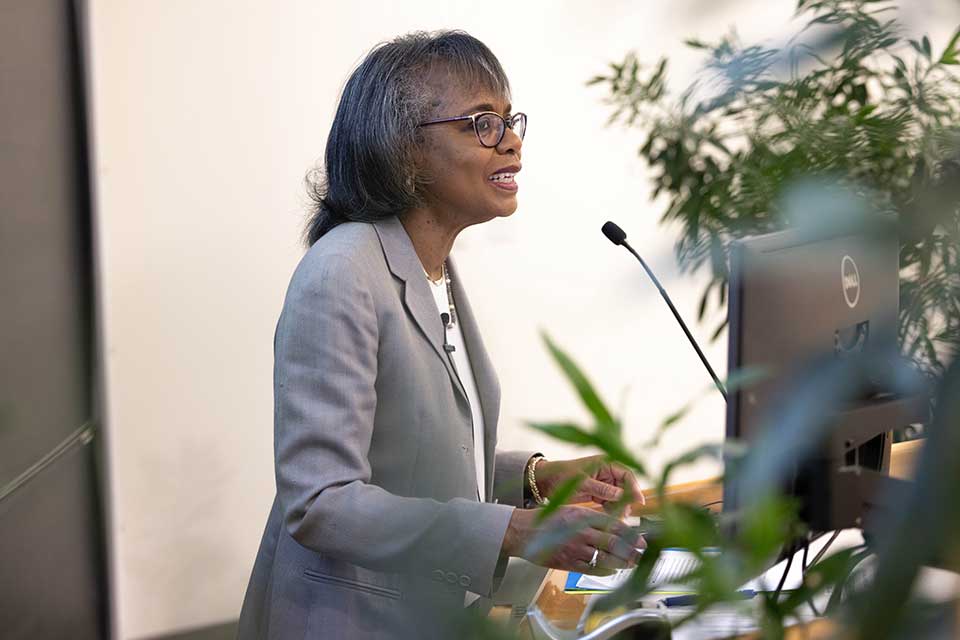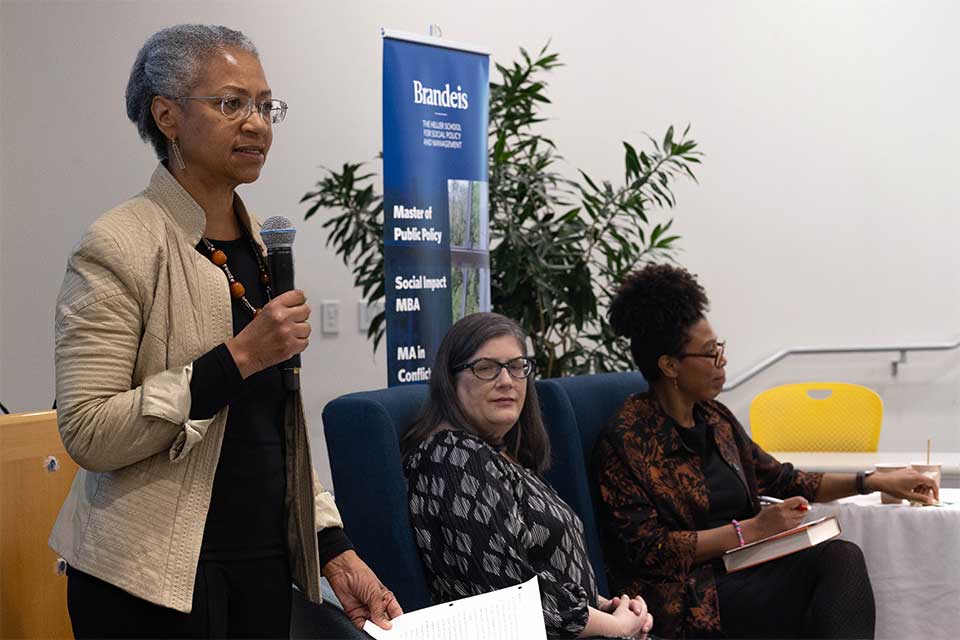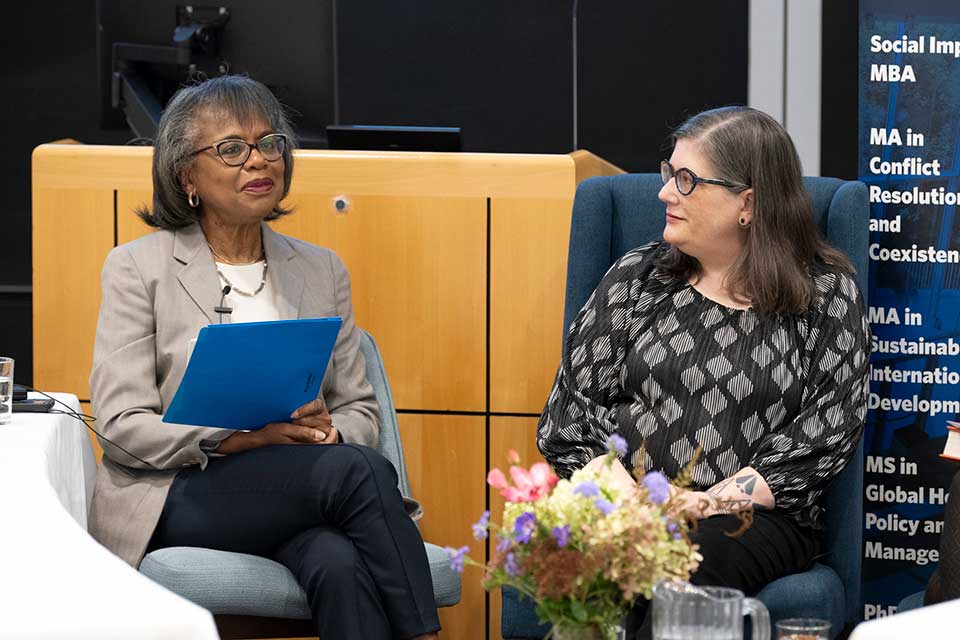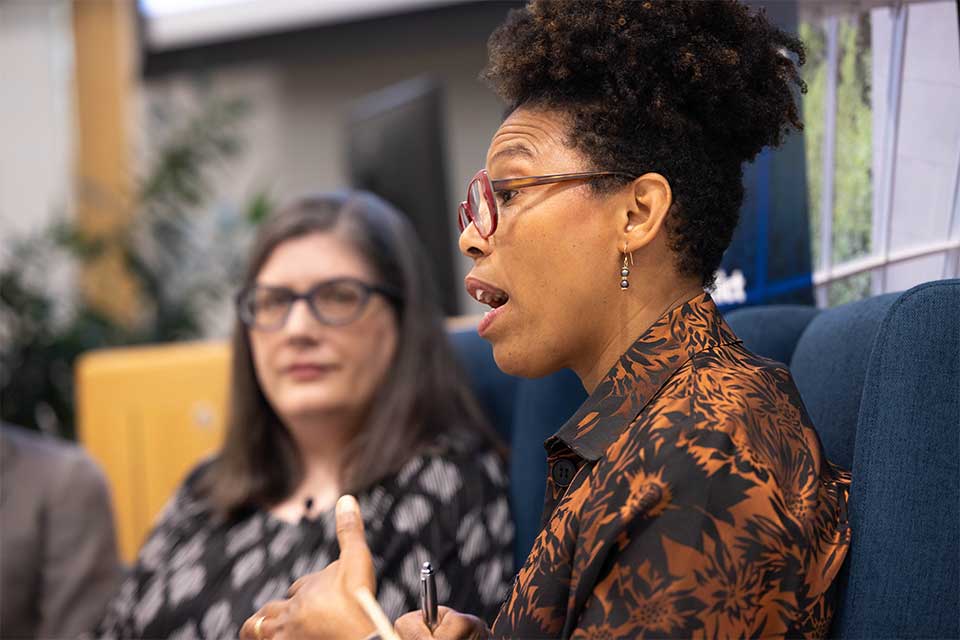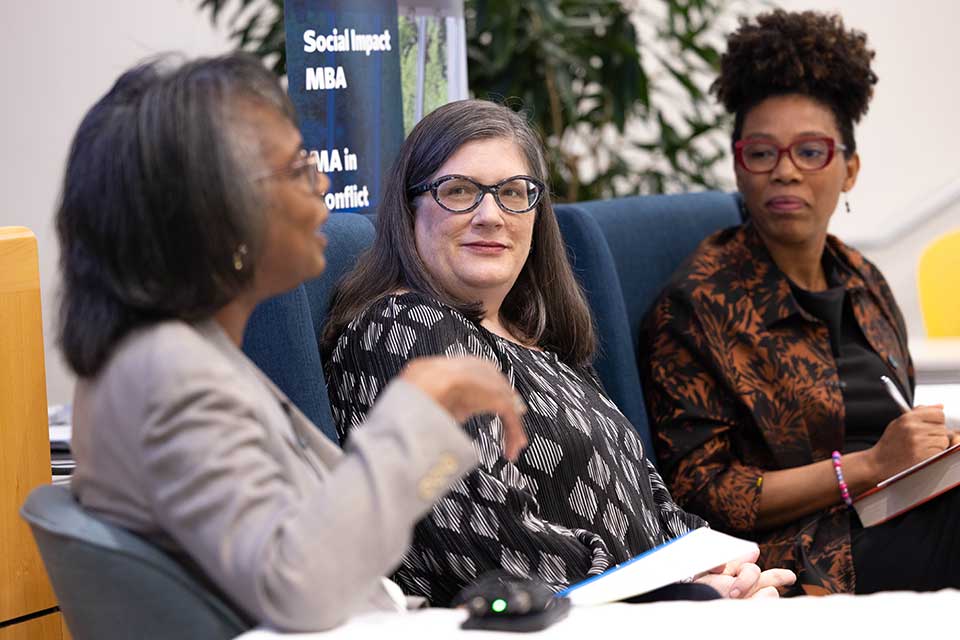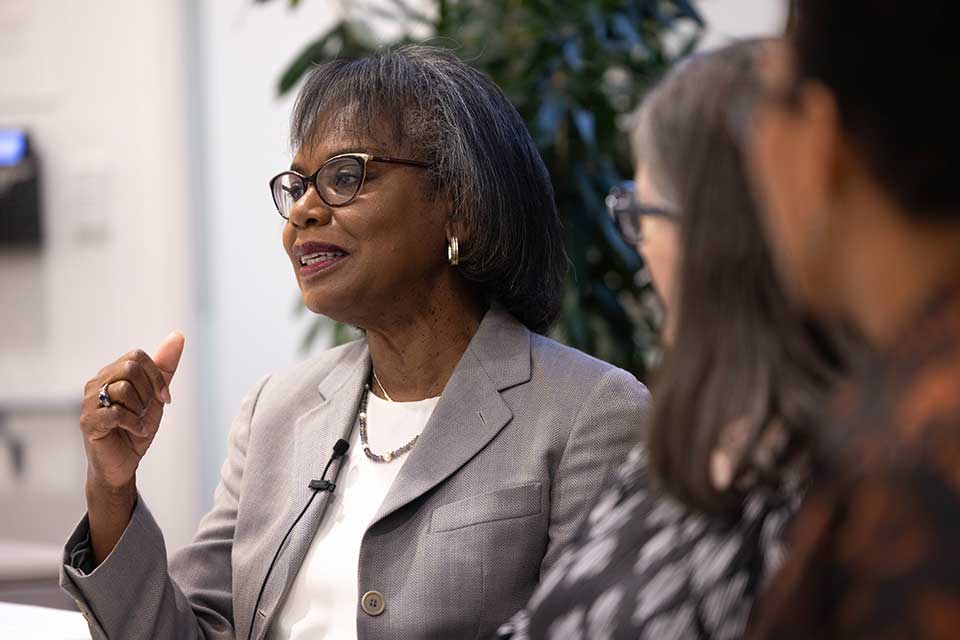Collectively Historicizing and Resisting Gender-Based Violence
Oct. 24, 2023 marked a special event in this year’s Mellon Sawyer seminar series; Brandeis University Professor Anita Hill moderated a comparative conversation between Crystal Feimster (Associate Professor of African American Studies, American Studies and History at Yale University) and Sarah Deer (enrolled member of the Muscogee Nation and University Distinguished Professor at the University of Kansas) that laid bare the roots of gender-based violence in settler colonialism and slavery.
Hill began by uplifting two distinct yet related events from her home state of Oklahoma: the settler occupation of the tribal lands of the Muscogee (Creek) Nation, and the Tulsa Race massacre as one stark example of anti-Black violence in the aftermath of slavery. Turning to the experiences of Native and Black women in the face of such harm, Hill then guided the speakers in an interrogation of settler colonialism and slavery as coexisting forms of oppression fundamentally reliant upon racialized gender and sexual terror as a tool of domination.
Gender-based violence against Native and Black women is neither accidental nor new. Sarah Deer explained that sexual assault in Indian Country literally started with Columbus, and that, for European colonizers, raping women was on a continuum with conquering land. Crystal Feimster emphasized that the United States was “built on a foundation of racial violence and sexual exploitation.” In the antebellum period, for example, enslavers used sexual violence against Black women to maintain the plantation system. While contemporary public discussions of gender-based violence often emphasize the harmful actions of individual men, getting at the root of the problem requires systemic thinking and a long historical memory.
Having interrogated key terms for bodily and cultural autonomy such as citizenship, sovereignty, testimony, and freedom, panelists ultimately emphasized myriad resistance practices on the part of those committed to ending gender-based violence: from the 1883 memoir by Paiute author and advocate Sarah Winnemucca documenting settler violence; to the 1991 statement “African American Women in Defense of Ourselves” in which Barbara Ransby, Elsa Barkley Brown, and Deborah King contextualized the Senate’s racist and sexist dismissal of Anita Hill’s experience as a reflection of systemic “attack[s] upon our collective character” and called to meet such dismissals with “protest, outrage, and resistance”; to the ongoing work of the Celia Project to revisit the case State of Missouri v. Celia, A Slave (1855) and restore Celia to the center of her own story. Activists, witnesses, and scholars across subject positions have long collaboratively historicized, denaturalized, and envisioned worlds beyond gender-based violence, and conversations such as this one are opportunities to be accountable to - and energized by - this ongoing work.
Posted by Carmel Ohman, Oct. 27, 2023
This was the second of nine sessions in the year-long Mellon Sawyer Seminar, “Imperiled Bodies: Slavery, Colonialism, Citizenship and the Logics of Gender-Based Violence” led by PI Anita Hill, co-PI Harleen Singh, and ChaeRan Freeze at Brandeis University. Brandeis University sponsors and resources include the Heller School for Social Policy and Management, the Department of Women’s, Gender, and Sexuality Studies, the Women’s Studies Research Center, the Mandel Center for the Humanities, the Hadassah Brandeis Institute, the Feminist Sexual Ethics Project, the Rose Art Museum, the Kniznick Art Gallery, the Gender and Sexuality Center, and the Prevention, Advocacy, and Resource Center. This seminar is among the signature events of the Heller 65th Anniversary year, Celebrating Knowledge Advancing Social Justice #Hellerat65.
